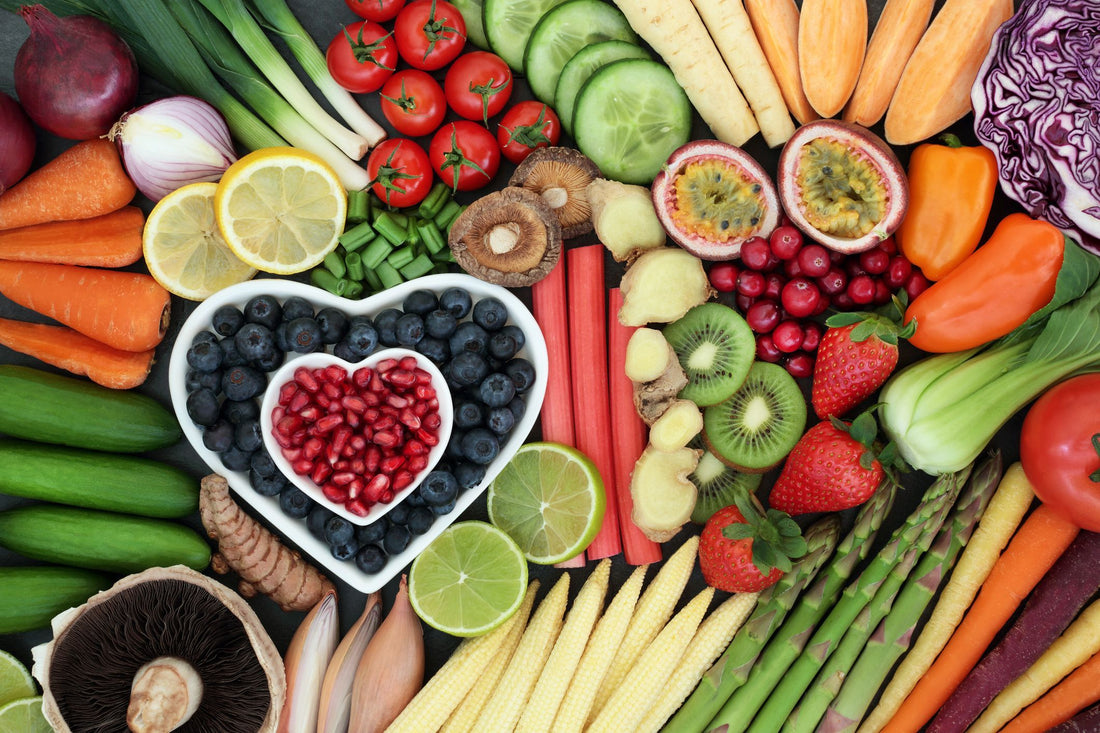
It's common to underestimate the significance of proper nutrition. Many of us gravitate towards convenient, processed foods or even forgo meals entirely. Nevertheless, it's crucial to recognize that our dietary choices have a profound influence on our overall well-being. The timeless saying, "You are what you eat," remains relevant, emphasizing the need to prioritize our nutrition for a healthier and happier life.
The link between nutrition and well-being
Proper nutrition isn't just about maintaining a healthy weight or fitting into your favorite jeans, it's about nurturing your body and mind to function properly. The food we consume serves as fuel for our bodies, impacting not only our physical health but also our mental and emotional well-being.
A well-balanced diet can:
- Boost energy levels:
The food we eat provides the energy required for all our daily activities. Eating the right nutrients in the right proportions can help prevent energy slumps and maintain consistent vitality throughout the day.
- Improve mental health.
Nutrient-dense foods, such as fruits, vegetables, and whole grains, can positively influence your mood and reduce the risk of depression and anxiety. Essential nutrients like omega-3 fatty acids and vitamins play a crucial role in brain health.
- Support weight management:
Maintaining a healthy weight is not just about appearances but also about reducing the risk of chronic diseases, such as diabetes, heart disease, and certain cancers. A balanced diet can help with both weight loss and weight maintenance.
- Enhance immune function:
The immune system relies on various nutrients to function optimally. Eating a diet rich in vitamins, minerals, and antioxidants can strengthen your immune system and help you fight off illnesses.
- Promote longevity:
A diet that is high in plant-based foods, lean proteins, and healthy fats has been associated with a longer and healthier life. It can reduce the risk of chronic diseases that can shorten our lifespan.
Building a foundation for a healthier you
Now that we understand the significance of nutrition for our well-being, let's explore some practical steps to incorporate healthier eating habits into our lives:
- Balance your plate:
A balanced diet typically includes a mix of macronutrients like carbohydrates, proteins, and fats. Make sure your plate contains a variety of foods to ensure you're getting the necessary nutrients.
- Eat whole foods:
Processed foods often contain added sugars, unhealthy fats, and preservatives. Opt for whole foods like fruits, vegetables, whole grains, and lean proteins to maximize your nutrient intake.
- Stay hydrated:
Water is essential for various bodily functions. It’s recommended to drink at least eight cups of water per day, so aim to drink plenty of water throughout the day to stay properly hydrated.
- Practice portion control:
Overeating, even healthy foods, can lead to weight gain. Pay attention to portion sizes to avoid consuming more calories than you need.
- Include colorful foods:
Different colors in your meals signify a diverse range of nutrients. Consume a variety of colorful fruits and vegetables to maximize your vitamin and mineral intake.
- Limit sugar and processed foods:
High sugar intake has been linked to various health problems. Minimize your consumption of sugary snacks and processed foods.
- Listen to your body:
Pay attention to your body's hunger and fullness cues. Eating mindfully can help prevent overeating and promote a healthier relationship with food.
- Seek professional guidance:
If you have specific dietary concerns or health issues, consider consulting a registered dietitian or nutritionist.
Conclusion
Nutrition is the cornerstone of our well-being. By making conscious choices about what we eat, we can enhance our physical, mental, and emotional health. A commitment to a well-balanced diet is an investment in a healthier, happier you.